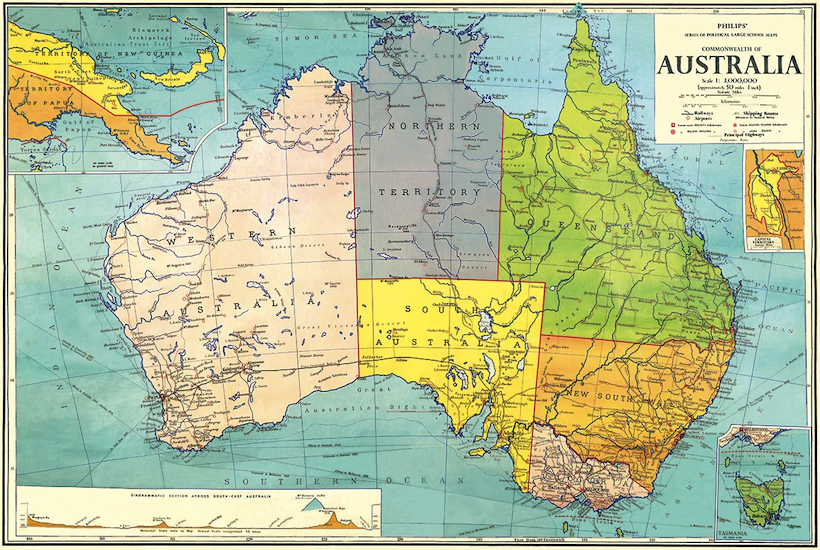There can be no real discussion of economic reform in Australia until there is a discussion of reform to the Australian Federation and more particularly of reform to Commonwealth-State financial relations.
Some six or so years ago, in a different time, I attended a presentation by a mayor of a Chinese city. The presentation had a feel of a general presenting the results of his deployment. He gave a brief presentation of the city, his plans and the progress against his plans. He presented some of the achievements of his administration. He showed some significant pieces of infrastructure built on his watch. He noted some companies in the city and which international stock exchanges he directed them to list on.
After the presentation, in discussion, the mayor disclosed the size of the city he that administered. He said that his was a relatively small city with a population of “only” 35 million people. This meeting comes to mind when reading about the National Cabinet.
The National Cabinet was presented as an innovation to co-ordinate Commonwealth and state government actions to best manage the issues and risks of COVID-19. Now that the health risks have eased the plans for the National Cabinet, rather than recededin, have instead grown. Discussion has included more co-ordination on infrastructure, on education and training, on tax reform and on energy policy.
There is no better demonstration of the failure of Australia’s federation than the National Cabinet and its precursors including COAG, the Council of Australian Governments and the old Premier’s Conferences. In a proper functioning federation, the state governments are supposed to deal with matters within their borders and the federal government is supposed to deal with matters that are national and that cross borders. Things like defence, quarantine, immigration and interstate commerce are meant to be the realm of the Commonwealth and things like health, education and utilities are meant to be the realm of the states.
Yet the Australian federation has been so distorted and degraded that every issue seems to need nationalisation, central direction and inter-governmental co-ordination. This has resulted in a giant and expensive system of asymmetric costs and benefits, and moral hazards. Take Queensland for example.
The Queensland government has made a policy decision to maintain border closures. However, Queenslanders do not feel the true cost of this policy decision. The damage to Queensland’s economy from this policy choice is underwritten by transfer payments from the Commonwealth paid for by all Australians and not just Queenslanders. The Queensland government has made a decision on managing its borders and yet every Australian, including those who have no say in electing the Queensland government, are dragged into the financial consequences.
Take another example, school education. Notwithstanding that the needs of a student in far north Queensland might differ from the needs of a student in western Sydney which might differ from the needs of a student in remote Northern Territory which might differ from the needs of a student in regional Western Australia, Australia has a national curriculum which overlays various state school curricula.
This national curriculum is overseen by a Commonwealth agency (ACARA) co-ordinated and overseen by a Commonwealth Department of Education, which itself does not operate any schools, in further co-ordination with eight state and territory Departments of Education.
With this phalanx of departments and administrators, where does the accountability for education outcomes lie? To whom does a parent in regional Victoria make representations about the content of her child’s school curriculum?
This system of Commonwealth and state government co-ordination not only creates policy and legislative complexities, but it is exceptionally expensive; not only by way of cash cost in controlling and managing this administrative leviathan, but by way of the productivity drag due to the need to navigate and comply with this complexity and from the loss of competitive diversity.
The nationalisation of public issues, by design, results in centralised and standardised public policy. For all the calls for diversity and competition, public policy centralisation in Canberra eliminates economic and social diversity.
At the root of our federation’s failure is the current construction of our tax system where the Commonwealth is the principal collector and distributor of taxation. It was not meant or even designed to be this way. And because policy responds to payment, it is this revenue-raising and distribution power that gives the Commonwealth licence to centralise and meddle in every nook and cranny of this country.
This has also led to a system that incentivises poor government decision making because the costs are underwritten by those who have no stake. Similarly, good decisions are disincentivised because the benefits are shared with those who have paid no price. This is an invitation for dysfunction and not prosperity.
If the Queensland Government wants to close its borders, let the Queensland government be accountable to the Queensland people for any costs and benefits. If the NSW or Victorian governments want to undertake reform of their tax systems, the citizens of NSW and Victoria should be the principal beneficiaries of the wealth created and not the citizens of South Australia.
Australia needs a system of government that, except in extreme times like pandemics, does not require a National Cabinet or a COAG. We don’t need a Commonwealth government doling out the taxes of Western Australian citizens to build sporting facilities in the ACT and nor do we need Victorian citizens paying for the policy choices of the Tasmanian government. We need a Commonwealth with common sense.
Got something to add? Join the discussion and comment below.
Got something to add? Join the discussion and comment below.
Get 10 issues for just $10
Subscribe to The Spectator Australia today for the next 10 magazine issues, plus full online access, for just $10.


























Comments
Don't miss out
Join the conversation with other Spectator Australia readers. Subscribe to leave a comment.
SUBSCRIBEAlready a subscriber? Log in